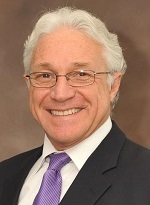 By Jim Greenwood
By Jim Greenwood
Recently, Rep. Rosa DeLauro (D-CT) sent a letter to the FDA criticizing expedited approval pathways designed to accelerate the commercialization of innovative treatments.
Rep. DeLauro's letter to the FDA does not capture the role of FDA's expedited approval programs in speeding therapies to patients suffering from unmet medical needs and faced with few or no medical alternatives. Regulatory innovations--such as the breakthrough therapy designation, accelerated approval and other potential new approaches under consideration by the agency--can better leverage our modern understanding of the molecular and genomic basis of disease to make targeted, precision treatments available to patients earlier, while preserving the FDA's high standards for safety and efficacy.
Innovative biotech companies are committed to developing the next generation of modern, molecularly targeted therapies for life-threatening and debilitating illnesses, including cancer, Alzheimer's, HIV/AIDS and rare genetic diseases. To deliver on this promise for patients anxiously waiting for new cures and treatments, we must promote an FDA regulatory environment that embraces cutting-edge science and regulatory flexibility to carefully balance the benefits and risks of new medicines. There is not a one-size-fits-all approach to the science of innovative drug development, and the FDA's expedited approval programs reflect that reality.
In fact, just 18 short months ago, Congress overwhelming endorsed the Food and Drug Administration Safety and Innovation Act, which built upon the agency's decades-old legacy of expediting drug development for severe diseases and conditions. Using smarter, more adaptive and sophisticated approaches to drug development, we can unleash the promise of biotechnology to improve human health.
As FDA Commissioner Margaret Hamburg aptly stated on her blog this week, "[i]ncreased flexibility does not mean abandoning standards, and it certainly does not mean abandoning science. Just the opposite. We need to employ the best science in ways that will increase efficiency, productivity and our shared ability to find creative solutions to the challenges that confront us."
Jim Greenwood is president and CEO of the Biotechnology Industry Organization (BIO) in Washington, DC, which represents more than 1,200 biotechnology companies, academic institutions, state biotechnology centers and related organizations across the United States and in more than 30 other nations.